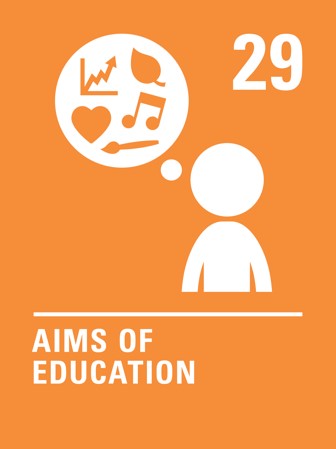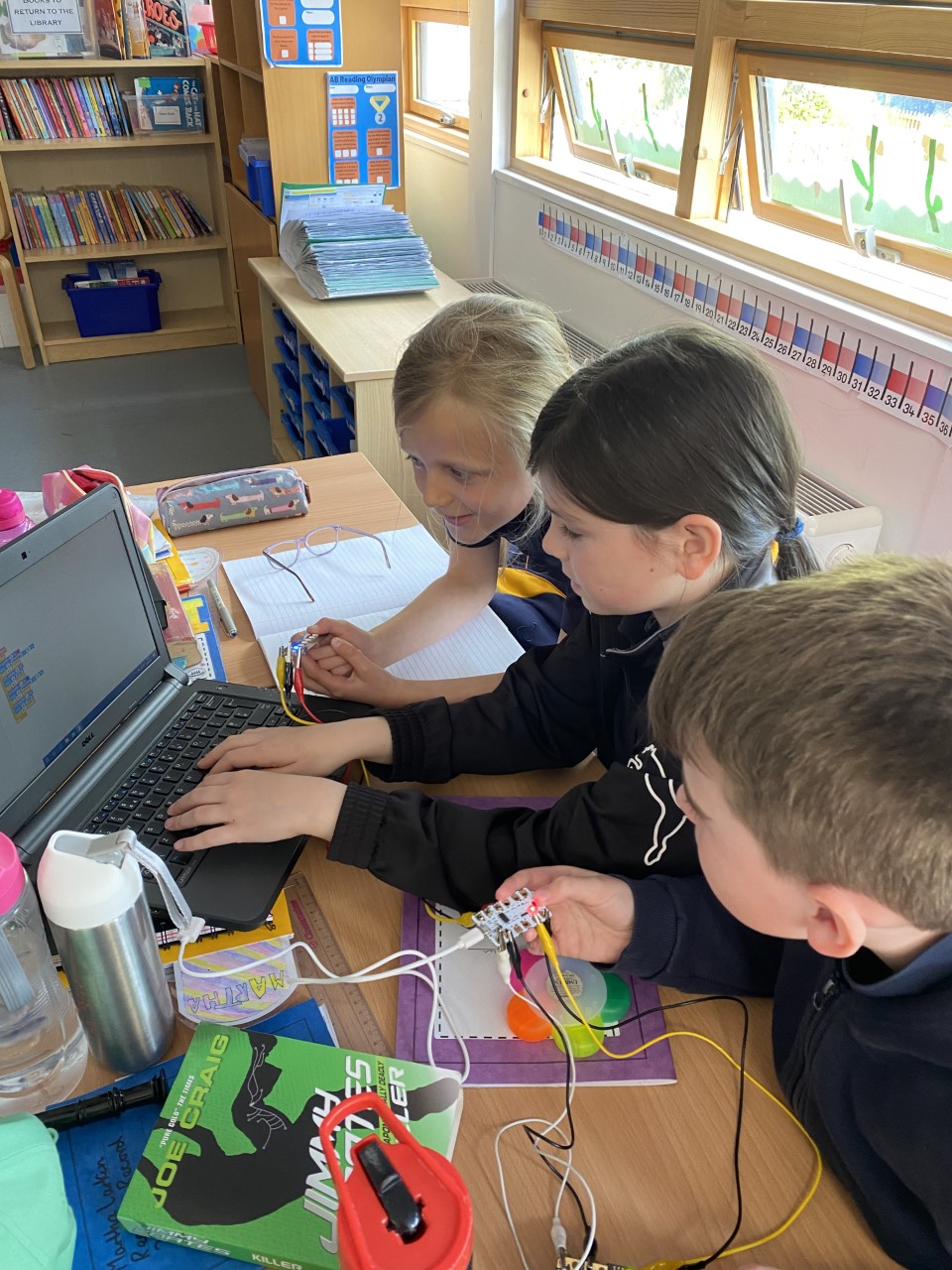Our Curriculum
Our Approach to Learning and the Curriculum:
 The UN Convention on the Rights of the Child says every child has the right to an education which develops their personality, respect for others, others' rights and the environment.
The UN Convention on the Rights of the Child says every child has the right to an education which develops their personality, respect for others, others' rights and the environment.
 At RA Butler we have high ambitions for all pupils. We aim for all children to leave our school with the 6R values embedded in their approach to learning so they are ready to face the next stage of their education with the necessary traits to succeed. These are: Respectful Relationships, Resilience, Reflectiveness, Risk –Taking, aRticulacy and Resourcefulness.
At RA Butler we have high ambitions for all pupils. We aim for all children to leave our school with the 6R values embedded in their approach to learning so they are ready to face the next stage of their education with the necessary traits to succeed. These are: Respectful Relationships, Resilience, Reflectiveness, Risk –Taking, aRticulacy and Resourcefulness.
Our curriculum is ambitious, broad and well-balanced for all pupils. We follow the National Curriculum and enrich it through carefully selected activities and experiences.
 Our knowledge-rich curriculum provides opportunities for children to apply their skills across all subjects and ensures pupils have the cultural capital required to be successful citizens. This approach enables children to apply knowledge and skills they have learnt to new situations. We ensure that all children have access to a broad and balanced curriculum, identifying quality first teaching as the biggest key to success. The Pupil Premium Grant (PPG) is allocated wisely to enable us to ensure pupils entitled to PPG funding make progress in line with their peers.
Our knowledge-rich curriculum provides opportunities for children to apply their skills across all subjects and ensures pupils have the cultural capital required to be successful citizens. This approach enables children to apply knowledge and skills they have learnt to new situations. We ensure that all children have access to a broad and balanced curriculum, identifying quality first teaching as the biggest key to success. The Pupil Premium Grant (PPG) is allocated wisely to enable us to ensure pupils entitled to PPG funding make progress in line with their peers.
At R A Butler we consider our curriculum to be much more than the details of what we set out to teach. Our school curriculum encompasses all that children learn as a result of being members of our school community. This includes the learning that takes place as a result of our taught curriculum but goes much further and includes learning through carefully and purposefully created experiences, traditions and interactions. Our curriculum combines what we teach with how we teach it, or importantly what children learn and how they learn it. The curriculum is carefully designed but continuously evolving with research and based on our community and children’s needs.
How we achieve our curriculum aims:
Each year we start with specially designed activities to remind the children of how the 6Rs are relevant and expected for their age group. These values are integral to every day life at the school, but are also taught through specific activities throughout the school calendar:
Examples of specific curriculum opportunities with direct teaching of 6Rs

We hold an annual event for our parents in KS1 to discuss these values and how they can be encouraged and embedded at home.
Alongside the 6Rs we also deliver a curriculum which is rich in first-hand experiences. Children across the school
- · Begin each topic with a launch event designed to spark children’s interest and engagement. This also acts as a ‘leveller’ to enable all children to be able to access their future learning irrespective of any difference in cultural capital. It also acts as a knowledge harvest to allow teachers to ensure planning meets the needs of pupils.
- · Have a school trip experience each term which deeply links and supports their learning in the classroom.
- · Attend daily assemblies carefully planned to expand our school curriculum and cultural capital
- · Have opportunities to explore new skills, experiences and talents in a broad range of clubs and teams representing the school at a local and county level
Curriculum Organisation:
 At R A Butler, the direct teaching of knowledge and skills is organised into subject disciplines and our curriculum progressions set out the precise knowledge and skills which should be taught in each subject in each year group. They ensure effective progression across the school as children embed and build upon previous learning.
At R A Butler, the direct teaching of knowledge and skills is organised into subject disciplines and our curriculum progressions set out the precise knowledge and skills which should be taught in each subject in each year group. They ensure effective progression across the school as children embed and build upon previous learning.
The curriculum progressions have been developed by subject and year group specialists who worked collaboratively with curriculum leaders to combine: the expectations of the National Curriculum; published research into effective teaching and learning in each discipline; the expertise and experience of our knowledgeable staff and an understanding of our school community.
We also believe that the real world is more complex than individual subject disciplines and that children need to understand the connections and dependencies of their learning. To do this, we make meaningful and purposeful links between different subjects where it supports children’s development.
Where maths, English, PE and some other subjects are taught weekly, we have made a conscious decision to ‘block’ many foundation subjects into immersive experiences for the children. The purpose of this is to build effective building blocks with a clear and cohesive learning path for children. We believe it gives the curriculum momentum with a clear purpose building towards a meaningful ‘exit’ point
Language development is central to our curriculum; it is a text-rich, language-rich, word-rich curriculum.
 The school has a literature spine which has been designed to ensure all children enjoy and learn from the highest quality texts, both books and poetry, they are the books we believe no child should leave primary school without experiencing. They drive our curriculum, enhance our wider curriculum and fuel our children’s love of reading.
The school has a literature spine which has been designed to ensure all children enjoy and learn from the highest quality texts, both books and poetry, they are the books we believe no child should leave primary school without experiencing. They drive our curriculum, enhance our wider curriculum and fuel our children’s love of reading.
We directly teach children to use language and oracy plays a central role in our curriculum.
Children need to understand how to speak and listen effectively but they also need the vocabulary to articulate what they want to say. To support this our curriculum is word rich.
Based on an audit of learning behaviours and engaging with current research into making learning sticky, we have developed a range of strategies we expect all of our teachers to use in their daily work with the children to help learning make its way into children’s Long Term Memory. These strategies are based on a range of techniques connected to the use of knowledge organisers and mini quizzes.
Teachers also plan in active learning techniques to complement learning and give children all children the opportunity to become actively engaged in learning and to articulate their understanding.
We have also developed the use of pre and post learning ‘masterclasses’ to enable all children to be able to access learning at an age-appropriate level and to prevent a widening of a learning gap. We aim to keep the learning pace of all children at the highest level and ensure there is no ‘glass ceiling’
The Impact
Children thrive at RAB Junior School. They are happy, well-rounded individuals who have a strong sense of moral purpose and understand how the school values are shaping them as individual and learners. Outcomes show that attainment in reading, writing and maths – both as individual subjects – and combined is significantly above national and Essex local authority outcomes at all points throughout the school with all pupils making excellent progress. Pupils enjoy their learning and are enthused by the knowledge they gain. They often choose to complete further work at home, linked to their topic in class. They are motivated by things that happen at school e.g. our regular Friendship Days, charity fundraising events, public speaking events, Eco-work and global awareness through our Unicef learning.
 Pupils really enjoy reading and most demonstrate a high level of fluency. Children work diligently to gain their reading awards as they progress through the school. Feedback from our local secondary school confirms that the children join them very well prepared for the next steps in their learning journey.
Pupils really enjoy reading and most demonstrate a high level of fluency. Children work diligently to gain their reading awards as they progress through the school. Feedback from our local secondary school confirms that the children join them very well prepared for the next steps in their learning journey.
Please see our individual subject pages for more information about the curriculum organisation in each area.
If you would like to find out more about the school's curriculum please contact Deputy Head, Mrs Jo Cooper, via the office.
